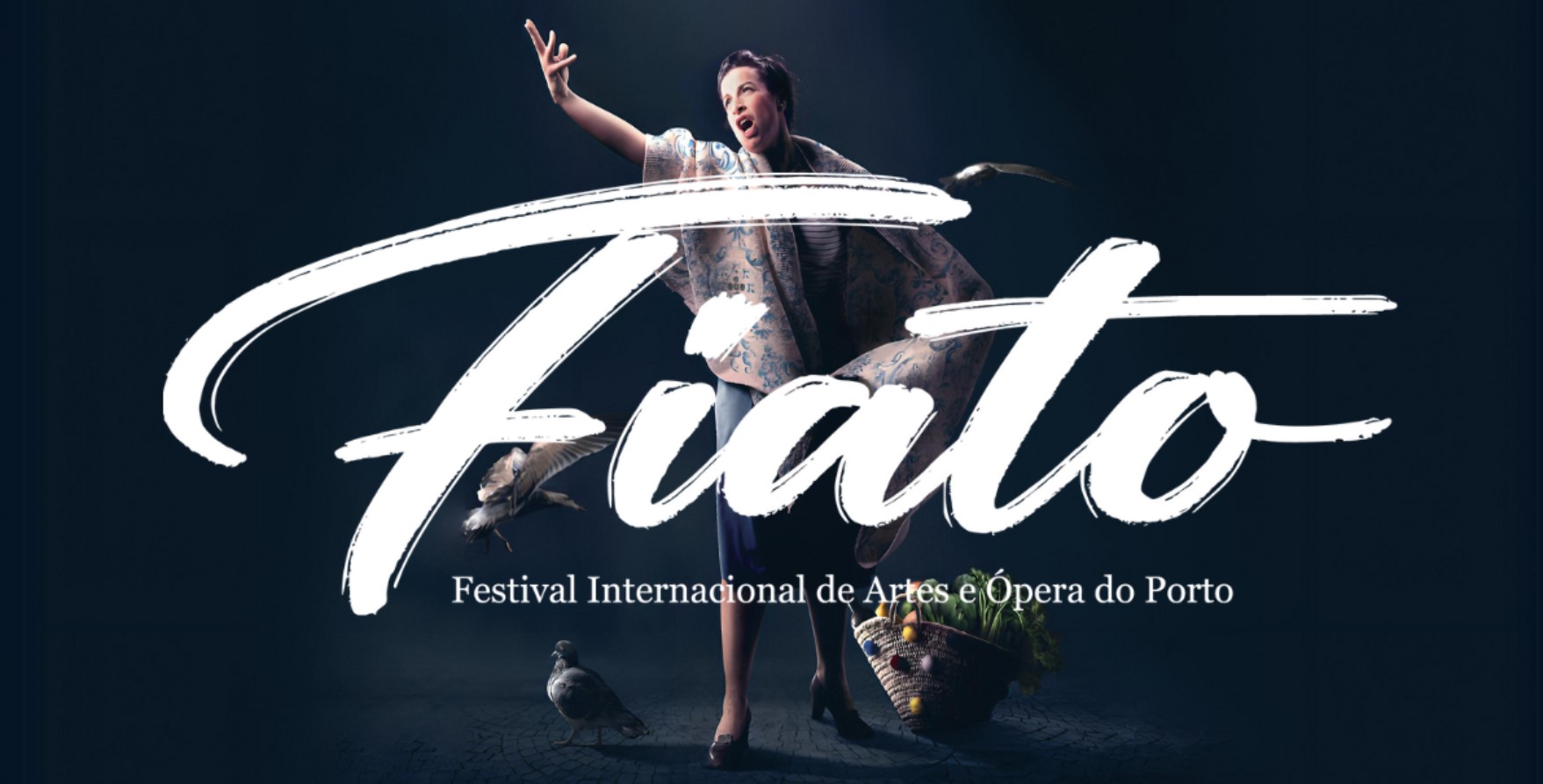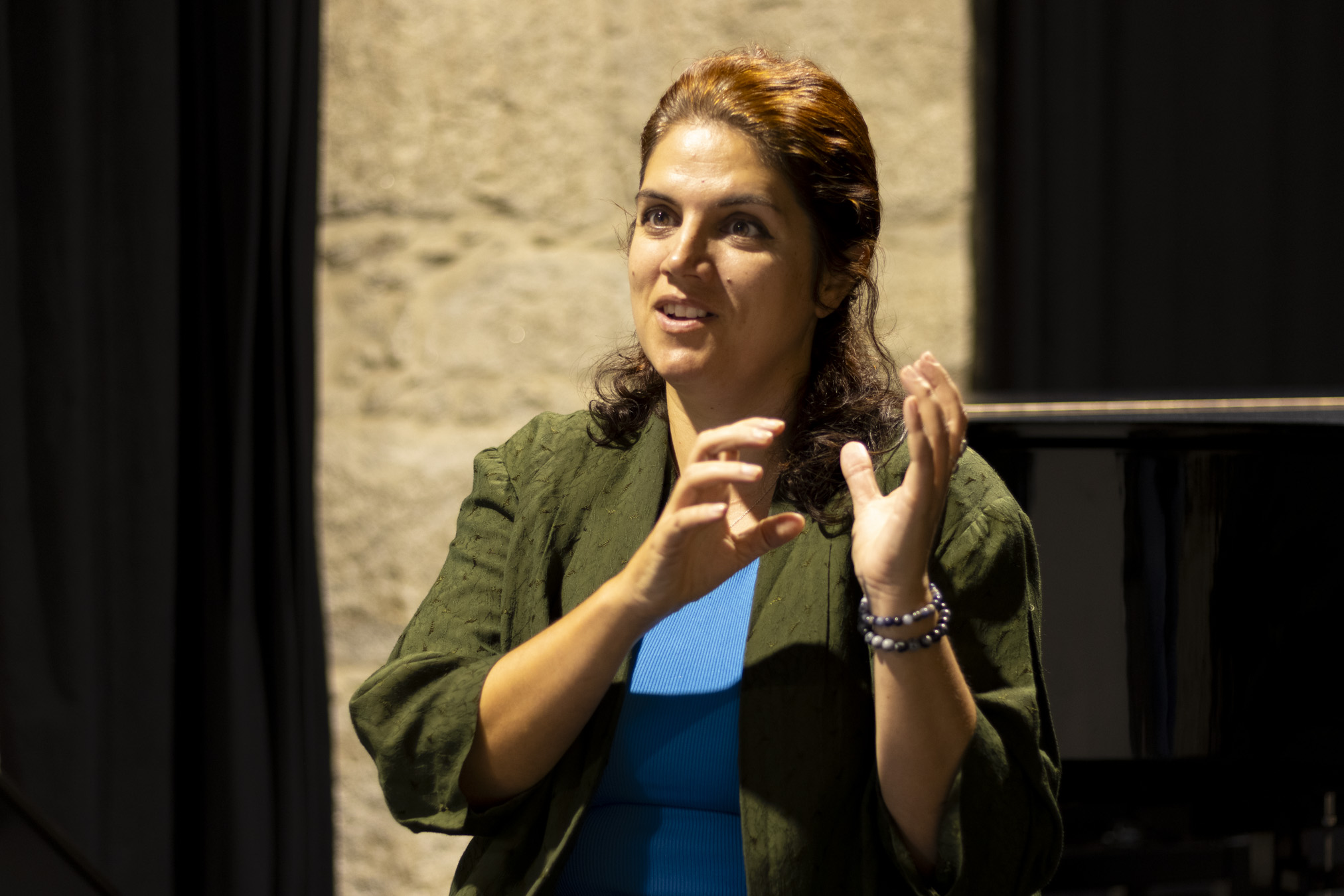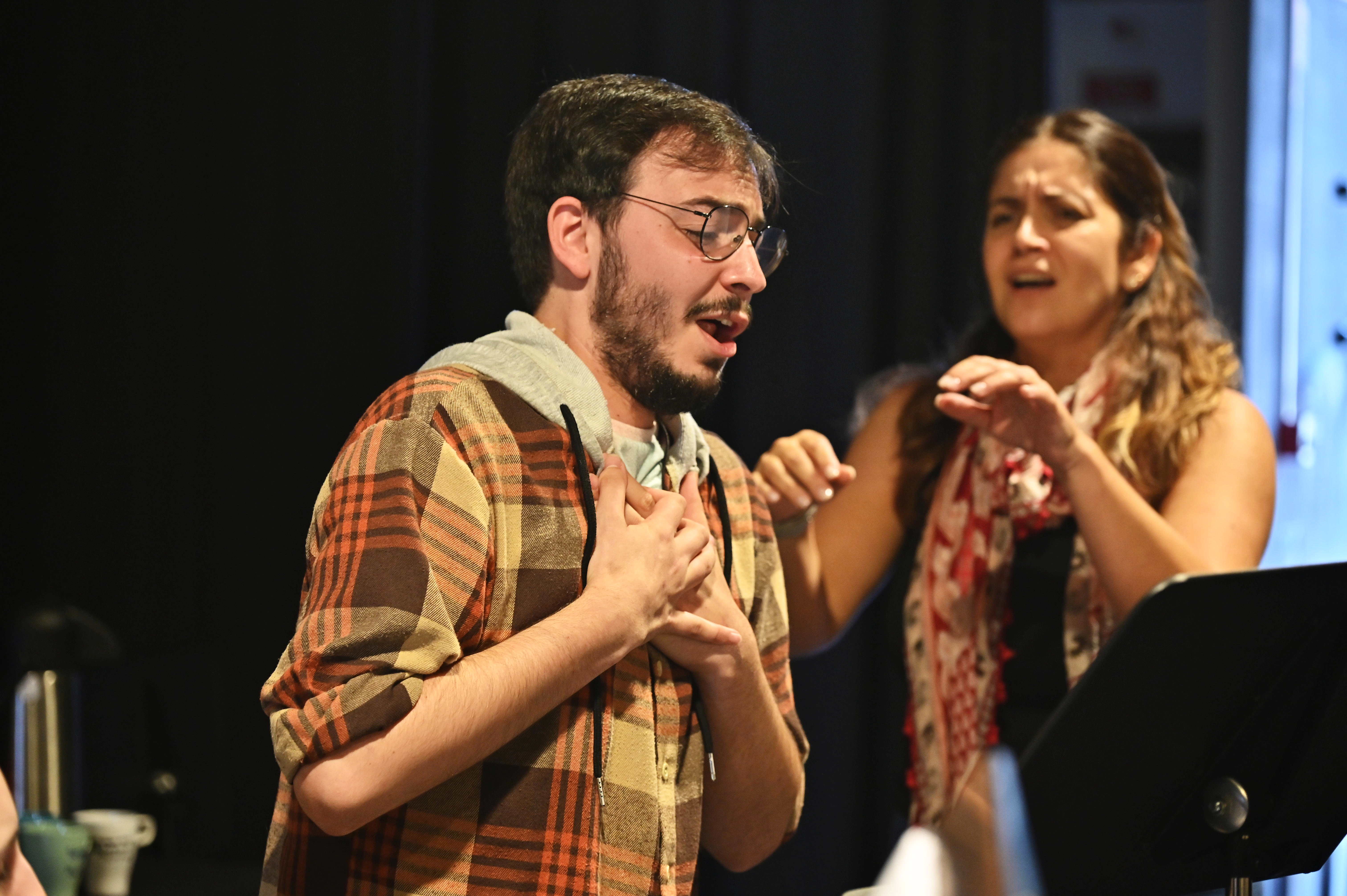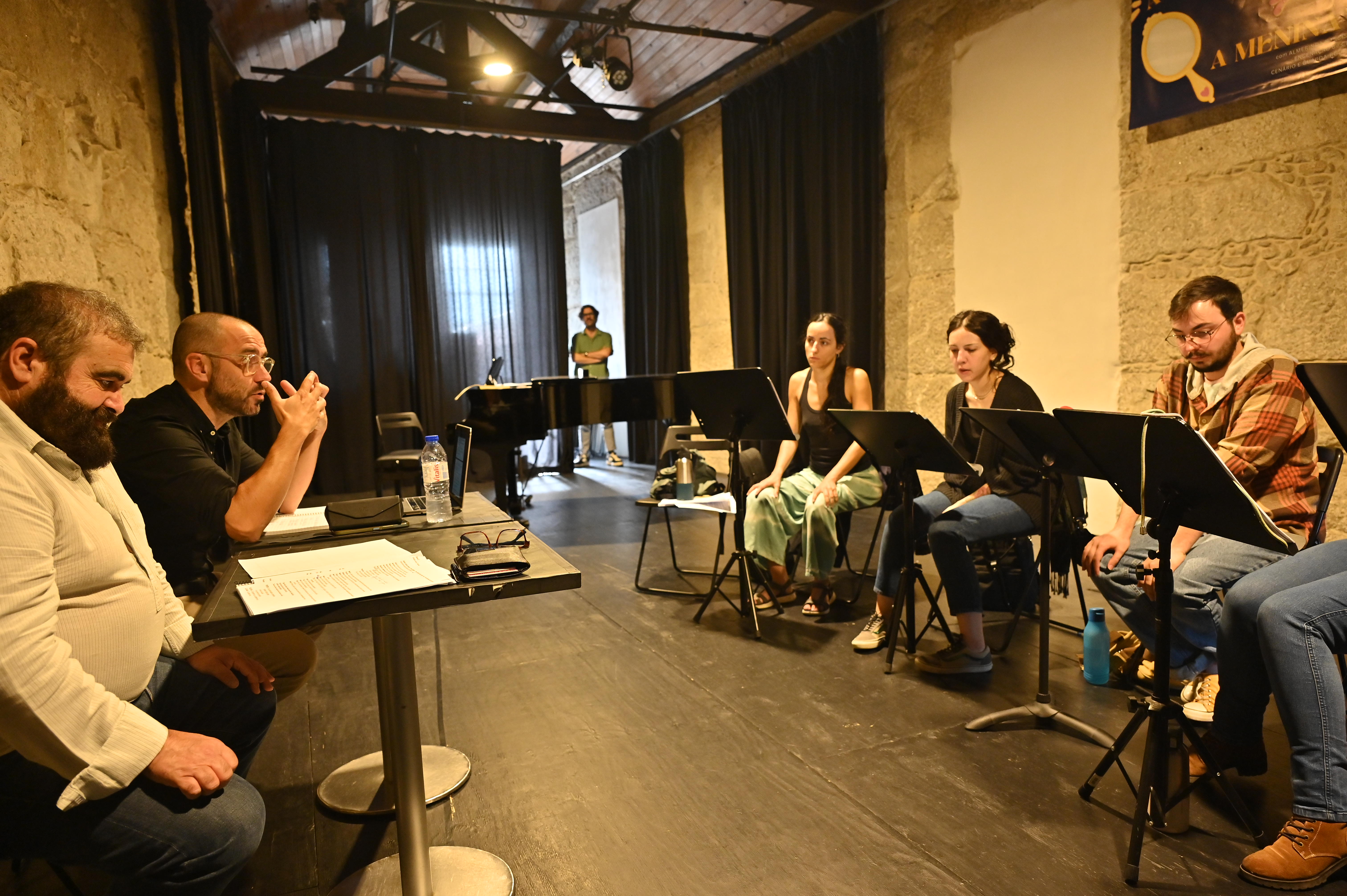EN

Between 13 and 16 November, the Contratempus Quartet brings us the first edition of FIATO - Porto's International Festival of Arts and Opera, which will take opera to concert halls, markets and public transport. But you can leave your gloves and binoculars at home - the opera it's bringing us is uncomplicated, uncluttered and condensed. We spoke to the festival's artistic director, Teresa Nunes, about what opera is all about.
Aria ( á-ri-a ) - Series of notes that make up a canto
The question evokes the most recent show produced by the Quarteto Contratempus - ‘What is opera?’, presented in the association's hall, Espaço QC, on 1 and 4 September. For Teresa Nunes, co-founder of the Quartet in 2008, the definition is simple and comprehensive: ‘It is undoubtedly a primordial form of expression.’ For the Quarteto Contratempus in particular, opera must also be something ‘that sends a message to the public, that moves people’.
After all, that's what they've been doing for over a decade - a unique case in the country, this is an association entirely dedicated to producing and staging original operas. Founded by musicians who recently graduated from ESMAE, they are dedicated to an art form that has almost been forgotten. Today, only one theatre in the whole country is dedicated to operas: the São Carlos Theatre in Lisbon. In the city of Porto, and with infrequent regularity, only the Coliseu used to bring this genre to the stage.

The causes of the abandonment of opera as a musical genre were, in essence, clear: very long plays, and very expensive productions due to their need for orchestra, sets, actors and extras. On the other hand, Teresa Nunes suggests that a certain dependence on the classical canon makes opera's themes too distant from today's audience: ‘The realities of opera's masterpieces are from another era.’ The Quarteto Contratempus takes up the fight against this distance: ‘We've worked on violence against women, environmental sustainability, and we're now going to work on the theme of refugees, in a piece that will premiere in February. We always think about what we want to say to the world when we set out on a new opera. And an opera doesn't always have to be a big drama with a soprano who has tuberculosis right from the first act.’

© Andreia Merca
Diva (di-va) - From the Italian, goddess. Famous opera singer.
These days, what Quarteto Contratempus wants to say to the world is simple: ‘We want to tell Porto that it needs opera. We've been out on the streets interviewing people, finding out what they know about opera - and many tell us that they like opera, but have never been to one.’ This seemed to be a problem on the supply side, hence FIATO's initiative. ‘We never thought we'd be programme-makers; the festival really arose out of the need to create a space for opera in Porto. I think people have an opportunity here to say that they want opera - by coming to the festival, by buying tickets, by patronising it.’
This sort of census of Porto's appetite for the genre kicks off with five contemporary operas. Opening the festival on the 13th, the operetta ‘Maria da Fonte’, directed by Ricardo Neves-Neves, is a reprise of the play premiered last November at the CCB. It will feature the choir of the São Carlos National Theatre and the Artave orchestra - it will be the largest-scale opera of the entire festival. On the 14th, Inestética Companhia Teatral brings ‘Manifesto Nada’ to the Bolhão Theatre, an opera about the Dadaist movement. On the 15th, ‘O Fauno das Montanhas’, at the Helena Sá e Costa Theatre, is the Arepo company's reinterpretation (‘opera’ in reverse script) of a Portuguese silent film. The little ones can join the party on the 16th with ‘Serena Serenata’ by Ópera Isto, at the Coliseu. And the finale is an opera by the Contratempus Quartet, ‘Torre da Memória’, at the Bolhão Theatre, with a libretto that pays homage to fishermen's wives.
Although it doesn't have a cross-cutting theme, this first edition of FIATO opens with a tribute to a strong woman from Portuguese history, and closes with a tribute to the vareiras, ‘women whose work was never sufficiently recognised’: ‘They were women who stayed on land while their husbands were out working, selling fish around the city, cooking, repairing damaged nets’. So, although it's not a guiding theme, the truth is that ‘the figure of the woman is a motto of this edition’.
Sul fiato - From the Italian, on the breath. Lyrical singing technique in which the singing is done with the exhaled breath
But FIATO isn't just about theatre performances. As a result of an open audition for lyric singers, the Contratempus Quartet has been working with a team that will take five short sketches to various public spaces, in a series they've called ‘Opera à Moda do Porto’. These free-access shows will take place at São Bento Station, Trindade Metro Station, Via Catarina shopping centre on two different days, Bolhão Market and inside an STCP bus. According to Teresa, the idea is to ‘take “earwormy” melodies that people will recognise from commercials, for example, and transform them with new texts written by Ricardo Alves from Palmilha Dentada’. The aim of this activity is precisely to bring opera to the general public and take them by surprise, so that they realise that opera is more than the usual clichés. ‘I'm happy with the idea that we're going to divert people from their usual path, that we're going to surprise them with something new.’

© Rui Meireles

© Rui Meireles
Other parallel programmes include free vocal screenings and vocal health workshops, in partnership with a health institution, and an ‘open mic’ evening - a kind of ‘opera karaoke’ with live music, at Casa da Beira Alta, where anyone can sing their favourite aria, accompanied by the musicians present. The Casa da Beira Alta will also host an exhibition of opera posters, provided by Coliseu Porto Ageas and created by ESMAD students for augmented reality. The event closes with a party at Maus Hábitos, with a new angle for a pair of DJs who are regulars at the venue, in ‘Shuggah Lickurs vai à Ópera’ (Shuggah Lickurs go to the Opera).
The first edition is full of hope that ‘opera is here to stay’ in the city. With regard to the future of the festival, Teresa confesses that she would like it to ‘become a permanent structure that exists on its own, like fimp or FITEI’.
by Ricardo Alves
Share
FB
X
WA
LINK
Relacionados


